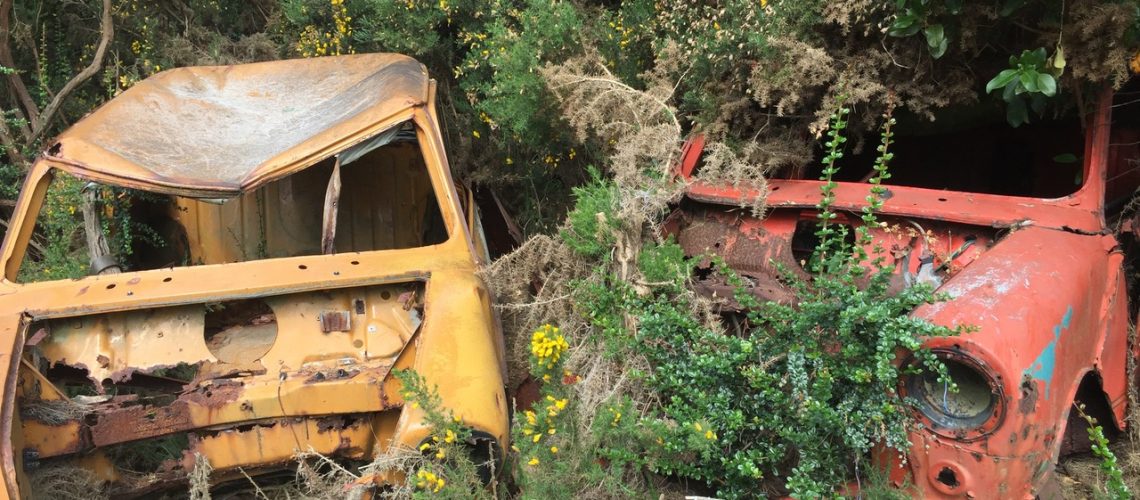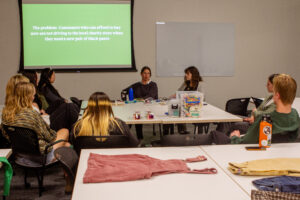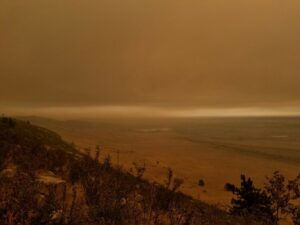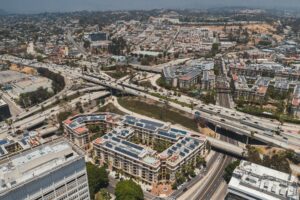Guest Post By James Hale, 2020-2021 Sustainability Leadership Fellow and Postdoctoral Fellow in the Department of Sociology at Colorado State University
Interdisciplinary and cross-sectoral work has become commonplace within sustainability transition efforts. As a sociologist who specializes in the social dimensions of sustainability, I am often contacted about providing social science support for related research and practice. For example, biophysical scientists and engineers get in touch when looking for social scientists to help them understand barriers and opportunities to the adoption of a particular sustainability practice or technology. Industry, community groups, advocates, and policymakers often have similar interests. Essentially, folks are concerned with getting this or that group of people to do this or that more sustainable thing. Social change is a central concern within the social sciences, so it makes sense to be contacting a sociologist about collaborating. I’m very fortunate to be one of these people from time to time – I truly enjoy interdisciplinary and cross-sectoral work.
A common challenge I am faced with when contacted to collaborate, however, is that particular assumptions are made early in a project without the involvement of social scientists and this can create a path dependency that sidelines social science contributions. For instance, there may be different ways to understand which groups exist, which matter, and how they matter for a particular problem. Similarly, social science is sometimes an afterthought when making assumptions about what “sustainability” is and what the drivers of unsustainable practices are. Take, for example, the claim that greenhouse gases (e.g. CO2) cause climate change. This appears at first glance to be a straightforward, unbiased statement (i.e., non-normative). However, taken by itself, the assumption obscures what a social scientist may see as a root cause – the social drivers of rising CO2 levels which then result in climate change.i For instance, social scientists have systematically studied the social dimensions of policyii and economic practices related to climate change.iii They have also studied networks that fund climate change denialism as well as barriers and opportunities to socio-economic policies or cultural practices which may drive CO2 emissions.iv
The trouble is that people sometimes don’t agree about what the social is, what it ought to be, and how we create change, let alone how we study it.v Social scientists themselves have many different and often conflicting views about these concerns, which upon first glance might make it look fuzzy and not as rigorous. Disagreements and resulting discomfort can result in the social lens being seen as political and therefore something to be avoided, all while implicitly being a fundamental concern and determinant of sustainability outcomes. After all, a major reason that folks are concerned with the causes of climate change is how it affects current and future generations! Rather than sidelining or delaying the inclusion of the social in science and extension, perhaps it is more useful to intentionally embrace the uncertainty and controversy social science can bring as productive forces in moving us closer to address complex problems.
Some of the research I work on with colleagues and mentors at Colorado State University’s Local and Regional Food Systems Research Group helps to show the value in including social science early in the research. As part of a Foundation for Food and Agriculture grant focused upon how changes in urban food system policies can improve rural wealth,vi I was able to speak with many wheat producers throughout Eastern Colorado about barriers and opportunities to transitioning to organic practices, something often encouraged in many sustainability transition plans. Rural wealth here is understood broadly using a conceptual framework that also includes impacts of various policy changes on biophysical sustainability, for example. Rather than trying specifically to change this group of people (the farmers), we were interested in building trust and in a way that helps us understand how such policy proposals are perceived by them and what this may mean for sustainability transition efforts.
Our work honed in on the impact of potential food policy changes in Denver, a place that has begun following other US cities such as Los Angeles, San Francisco, Chicago, and Boston in its consideration of adopting the Good Food Purchasing Program (GFPP) for food procurement at institutions such as schools, hospitals, and jails. GFPP standards include a point system that measures institutional procurement and nutritional practices within five pillars – local economies, nutrition, valued workforce, environmental sustainability, and animal welfare. Procuring food with organic certification provides points that an institution can use to demonstrate their commitment to purchasing “good food”. It was developed among a network of partners working on improving school food procurement in Los Angeles through a lengthy process that in-and-of-itself may have created trust across stakeholders, an important feature that is lacking in Denver’s efforts.vii
Wheat growers often see the GFPP as challenging for a variety of environmental, economic, policy, and socio-cultural reasons.viii There are varying regional biophysical characteristics, farmer practices, and sustainability goals that make the GFPP appear inflexible and yet another form of work put onto producers that feel already overburdened. For example, conventional wheat growers are quick to point out that the requirement of not using herbicides for organic status leads to more tillage to control weeds and carbon emissions. The privileging of small farms through points received under GFPP’s “local economies” pillar may unfairly penalize wheat growers due to their physical size and gross sales. Though they are categorized by the USDA as “large farms”, they tend to view themselves as struggling financially.
There are also significant social pressures on farmers that constrain their ability to try new practices. Conventional wheat producers experimenting with organic practices described planting their organic fields far from traveled roads so their neighbors won’t see them. These fields look different, often having more weeds, and they want to avoid being judged as a “bad farmer”. We also found that farmers who have more social relationships across different socio-cultural groups and/or are more different socio-culturally from their neighbors were potentially more likely to transition. In a sense, these folks cared less what their neighbors think because they are already outsiders. Or, put another way: they care more about how their relatively more diverse social networks view them rather than their conventional farmer neighbors.
These insights complicate the approaches often taken to sustainability transitions. It is not simply a lack of information for producers. Rather, their ability to transition is related to a variety of social, cultural, infrastructural, and economic dimensions that shape how they may experience a new practice or technology. In this way, putting the locus of change on farmers adopting this or that sustainability practice may be less effective than working to establish trust and empathy as building blocks toward creating more impactful research and extension. For example, research questions that hone in on other structural constraints farmers may have to changing (e.g. economic consolidation in food system supply chains, the influence of agriculture subsidies, cultural values), and work on building coalitions and collaborations that seek to address those systemic issues, may be more effective in creating change than continuing to put most farmers on the defensive.
Social science provides a variety of conceptual and methodological tools that help sustainability efforts understand more than just the adoption of sustainability practices. It can play a valuable role in connecting and translating between systems, change the type of questions we might ask to get at the root causes of unsustainable practices, and ultimately help us move toward sustainable alternatives. It also can play a role in changing the tendency for scientists to assume that they have the answer and that we just need to communicate it more effectively. Social science can help knowledge move the other direction as well. For example, it can help us understand systems and forms of meaning that actually make up the public sphere and integrate these into scientific processes, potentially leading to more sustainable outcomes.
Here are a few suggestions for working with social scientists –
- Get in touch early and preferably during the conceptual and methodological development of projects.
- Work with your team to establish common understandings of key terms and concepts.
- Understand that human behavior and how we study it is very complex and often contested.
- Stay open-minded to other ways of doing science. The social sciences have a wealth of concepts and theoretical and methodological paradigms that can be helpful to understanding sustainability transitions. For example, social science provides more tools for studying what can be difficult to count or objectify and a history of cases that can shape the analytical process. The tendency to privilege numbers and biophysical processes in sustainability sciences are themselves a type of research bias and may actually be leaving out much of the world we need to understand to create sustainable change.
- Invite and be okay with discomfort.
How about you? What are some of the barriers and opportunities you experience in integrating social science into sustainability research and practice?
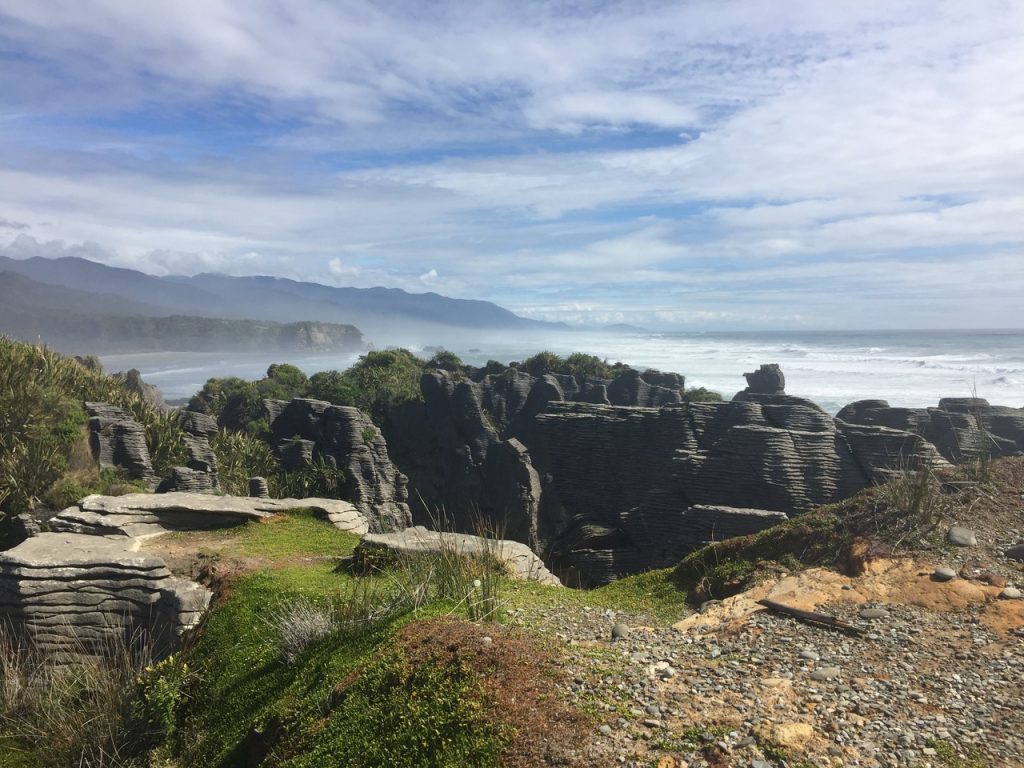
i e.g. see Carolan, Michael and Diana Stuart. 2016. “Get Real: Climate Change and All That ‘It’ Entails.” Sociologia Ruralis 56(1):74–95.
ii e.g. see Dietz, Thomas, Amy Dan, and Rachael Shwom. 2009. “Support for Climate Change Policy: Social Pyschological and Social Structural Influences.” Rural Sociology 72(2):185–214. OR Routledge, Paul, Andrew Cumbers, and Kate Driscoll Derickson. 2018. “States of Just Transition: Realising Climate Justice through and against the State.” Geoforum 88:78–86.
iii e.g. see Clark, Brett and Richard York. 2005. “Carbon Metabolism: Global Capitalism, Climate Change, and the Biospheric Rift.” Theory and Society 34(4):391–428.
iv e.g. see McCright, a. M. and R. E. Dunlap. 2010. “Anti-Reflexivity: The American Conservative Movement’s Success in Undermining Climate Science and Policy.” Theory, Culture & Society 27(2–3):100–133.
v e.g. see Hale, James, Katharine Legun, Hugh Campbell, and Michael Carolan. 2019. “Social Sustainability Indicators as Performance.” Geoforum 103(March):47–55.
vi Jablonski, Becca B. R., Michael Carolan, James Hale, Dawn Thilmany McFadden, Erin Love, Libby Christensen, Tabitha Covey, Laura Bellow, Rebecca Cleary, Olaf David, Kevin E. Jablonski, Andrew S. Jones, Paul Meiman, Jason Quinn, Elizabeth P. Ryan, Meagan Schipanski, Hailey Summers, and Mark Uchanski. 2019. “Connecting Urban Food Plans to the Countryside: Leveraging Denver’s Food Vision to Explore Meaningful Rural-Urban Linkages.” Sustainability (Switzerland) 11(7).
vii Jablonski, Kevin E., Jasmine A. Dillon, James W. Hale, Becca B. R. Jablonski, and Michael S. Carolan. 2020. “One Place Doesn’t Fit All: Improving the Effectiveness of Sustainability Standards by Accounting for Place.” Frontiers in Sustainable Food Systems 4(September):1–10.
viii Hale, James, Meagan E. Schipanski, and Michael S. Carolan. 2021. “Just Wheat Transitions?: Working Toward Constructive Structural Changes in Wheat Production.” Local Environment 26(1):43–59.
